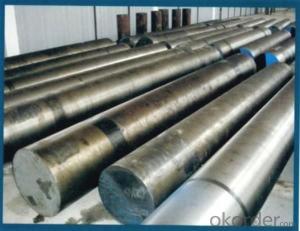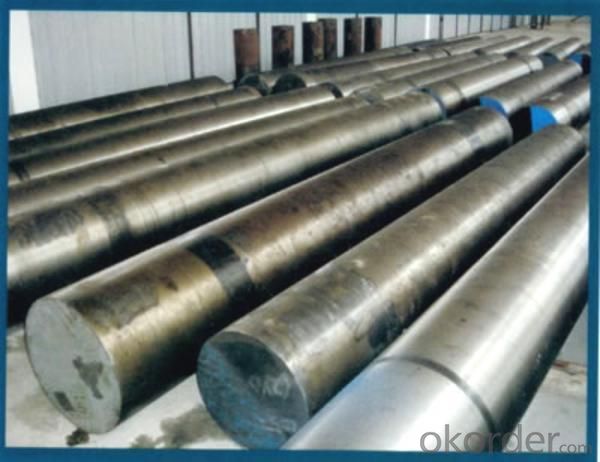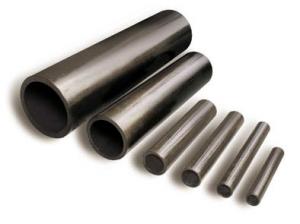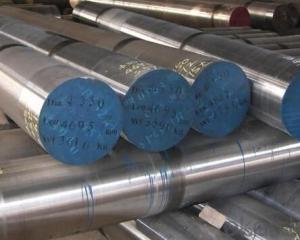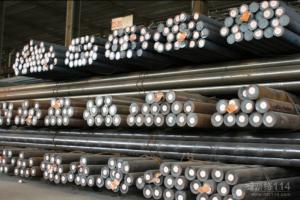Bearing Steels High Quality Special Steel
- Loading Port:
- China Main Port
- Payment Terms:
- TT or LC
- Min Order Qty:
- -
- Supply Capability:
- -
OKorder Service Pledge
OKorder Financial Service
You Might Also Like
Product Description:
OKorder is offering Bearing Steelsat great prices with worldwide shipping. Our supplier is a world-class manufacturer of steel, with our products utilized the world over. OKorder annually supplies products to European, North American and Asian markets. We provide quotations within 24 hours of receiving an inquiry and guarantee competitive prices.
Product Applications:
Wire drawing die/ Heading die
High Quality Bearing steel is used for manufacturing ball, roller bearing steel and rings. Bearing in work is under great pressure and friction, so have high demands bearing steel and hardness and resistance, and high elastic limit.
Bearing steels are used for ball and roller bearing applications and are comprised of low carbon steels and high carbon through harden able steel.
For example, bearing ring, steel rolling mill, machinery, 100Cr6 bearing steel ball is widely used in high-speed and low-noise bearing, bicycle, motorcycle, automobile, bags electronically.
.
Product Advantages:
OKorder's Bearing Steels are durable, strong, and resist corrosion.
Main Product Features:
· Premium quality
· Prompt delivery & seaworthy packing (30 days after receiving deposit)
· Corrosion resistance
· Can be recycled and reused
· Mill test certification
· Professional Service
· Competitive pricing
Product Specifications:
Grade | AISI 52100, ASTM E52100, DIN 1.3505,JIS SUJ2, GCr15 |
Dimensions | Diameter: 30-60mm Length: 2000-13000mm or as required |
Shape | Round Bar |
Type | Alloy Steel Bar |
Delivery Condition | Black Surface |
Material | Bearing Steel |
Technique | Hot Rolled |
Note of Bearing Steel Round Bar
1. According to national standard (GB) for our products, if not, supply according to national standards (GB) or agreement.
2. We can not only provide electric furnace +LF+VD and electros lag re-melting (ESR) steel forging materials, but also forging products of piece, bar, etc.
3. Our company is equipped with roll equipment and can provide our customers with roll billets or finished.
4. Please send us your detailed specifications when inquire. We will reply to you ASAP.
5. Certificate of quality is issued in English, in addition the normal terms, production process, the mechanical property (yield strength, tensile strength, elongation and hardness. forged ratio, UT test result, Grain size, heat treatment methods and the sample of is shown on the certificate
FAQ:
Q1: Why buy Materials & Equipment from OKorder.com?
A1: All products offered byOKorder.com are carefully selected from China's most reliable manufacturing enterprises. Through its ISO certifications, OKorder.com adheres to the highest standards and a commitment to supply chain safety and customer satisfaction.
Q2: How do we guarantee the quality of our products?
A2: We have established an advanced quality management system which conducts strict quality tests at every step, from raw materials to the final product. At the same time, we provide extensive follow-up service assurances as required.
Q3: How soon can we receive the product after purchase?
A3: Within three days of placing an order, we will begin production. The specific shipping date is dependent upon international and government factors, but is typically 7 to 10 workdays.
Images:
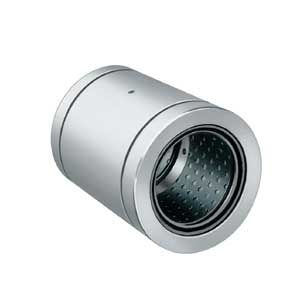
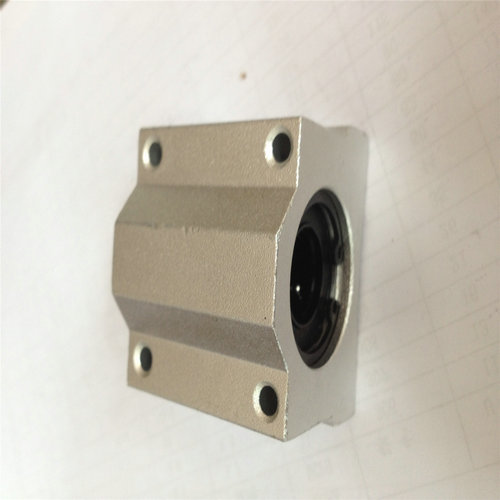
- Q: How does special steel contribute to the automotive emission reduction?
- Special steel contributes to automotive emission reduction in several ways. Firstly, special steel can be used in the manufacturing of lightweight components, such as body frames and engine parts. These lightweight components help reduce the overall weight of the vehicle, leading to improved fuel efficiency and lower emissions. Additionally, special steel can be utilized in the construction of exhaust systems, which are designed to effectively reduce harmful emissions. Special steel's high strength and corrosion resistance properties make it an ideal material for these components, ensuring their durability and effectiveness in reducing emissions. Overall, the use of special steel in the automotive industry plays a significant role in achieving emission reduction targets and promoting a more sustainable future.
- Q: Can special steel be used in the furniture manufacturing industry?
- Yes, special steel can be used in the furniture manufacturing industry. Special steel offers various advantages such as strength, durability, and corrosion resistance, making it suitable for producing sturdy and long-lasting furniture pieces. Additionally, special steel can be molded and shaped into various designs, providing flexibility and creativity in furniture manufacturing.
- Q: Can special steel be used in medical applications?
- Indeed, medical applications can utilize special steel. Known as stainless steel, special steel is extensively employed in the medical field due to its distinctive qualities and benefits. Its resistance to corrosion is exceptionally high, a crucial aspect in medical settings where exposure to bodily fluids and sterilization procedures is prevalent. Moreover, special steel is biocompatible, meaning it does not trigger adverse reactions upon contact with human tissues or fluids. Consequently, it finds suitability in numerous applications, including surgical instruments, orthopedic implants, dental equipment, and medical devices. The adaptability of special steel allows it to be molded into various forms, ensuring its utilization for diverse medical purposes. Furthermore, its strength and durability contribute significantly to its effectiveness in medical applications, providing dependable and long-lasting tools and equipment. Additionally, special steel can endure high temperatures, making it appropriate for autoclaving and other sterilization methods. In conclusion, the properties of special steel make it an exceptionally fitting material for medical applications, guaranteeing the safety, efficacy, and endurance of medical equipment and devices.
- Q: How does special steel perform in terms of chemical resistance?
- Special steel generally performs well in terms of chemical resistance. It is often designed to have high resistance to corrosion, oxidation, and chemical reactions with various substances. This attribute makes it suitable for applications in industries like oil and gas, chemical processing, and marine environments. However, the specific chemical resistance of special steel can vary depending on its composition and treatment, so it is important to consider the specific requirements and consult with experts when selecting the appropriate type of special steel for a particular application.
- Q: How does special steel contribute to improving product reliability in critical applications?
- Special steel plays a crucial role in enhancing product reliability in critical applications due to its unique properties. Its exceptional strength, durability, and resistance to corrosion, heat, and wear enable it to withstand extreme conditions and stresses. This reliability ensures that critical applications, such as aerospace, automotive, and medical equipment, operate efficiently and safely. Additionally, special steel's high precision manufacturing capabilities allow for the production of complex components, further enhancing the performance and reliability of the final product.
- Q: Can special steel be used in the construction equipment manufacturing industry?
- Yes, special steel can be used in the construction equipment manufacturing industry. Special steel, such as high-strength or wear-resistant steel, can provide enhanced durability and performance to construction equipment, making it suitable for demanding applications in the industry.
- Q: What are the main applications of special steel in the power generation equipment?
- Special steel is commonly used in power generation equipment for its high strength, corrosion resistance, and thermal stability. Some key applications include turbine blades, heat exchangers, boiler tubes, and generator components. These specialized steel alloys ensure reliable performance, efficiency, and durability in demanding power generation environments.
- Q: What are the requirements for special steel used in aircraft manufacturing?
- The requirements for special steel used in aircraft manufacturing are quite stringent due to the critical nature of the components and the demanding operating conditions in which they are subjected. Here are some key requirements: 1. High strength: Special steel used in aircraft manufacturing must possess exceptional strength to withstand the extreme forces and loads experienced during flight. This ensures the structural integrity and safety of the aircraft. 2. Lightweight: While strength is crucial, special steel for aircraft must also be lightweight to minimize the overall weight of the aircraft. This helps enhance fuel efficiency and allows for increased payload capacity. 3. Corrosion resistance: The steel must exhibit excellent resistance to corrosion, as aircraft are often exposed to harsh environments, including high humidity, saltwater, and various chemicals. Corrosion resistance helps maintain the structural integrity and prolong the lifespan of the aircraft. 4. Fatigue resistance: Special steel must have high fatigue resistance to withstand repetitive loading and unloading cycles that occur during flight. This ensures that the components do not fail prematurely due to cyclic stress. 5. Heat resistance: The steel should be able to withstand high temperatures generated by the engines, as well as the heat generated during high-speed flight. Heat resistance prevents deformation, melting, or loss of strength under extreme thermal conditions. 6. Weldability: Special steel used in aircraft manufacturing should possess good weldability, allowing for efficient and reliable joining of components during the manufacturing process. This ensures strong and secure connections between various parts of the aircraft. 7. Non-magnetic properties: In certain applications, such as electronic systems, it is essential for the steel to be non-magnetic to prevent interference with sensitive equipment. 8. Traceability and certification: The steel must have proper traceability and certification to meet industry standards and regulatory requirements. This includes documentation of the steel's composition, manufacturing process, and testing procedures to ensure consistent quality and performance. Meeting these requirements is essential to ensure the safety, reliability, and efficiency of aircraft. Special steel used in aircraft manufacturing undergoes rigorous testing, quality control, and certification processes to ensure it meets these stringent requirements before being used in the construction of aircraft components.
- Q: What are the properties of duplex stainless steel?
- Duplex stainless steel is a type of stainless steel that possesses a unique combination of properties. It is highly corrosion resistant, making it suitable for use in aggressive environments, such as those containing chlorides or acids. It also exhibits excellent strength and toughness, allowing it to withstand high pressures and temperatures. Additionally, duplex stainless steel has good weldability and formability, making it versatile for various fabrication processes. Its dual-phase microstructure provides a balance of ferrite and austenite, resulting in improved resistance to stress corrosion cracking and higher resistance to pitting and crevice corrosion compared to other types of stainless steel.
- Q: What are the potential health hazards associated with working with special steel?
- The potential health hazards associated with working with special steel include exposure to toxic fumes and dust, which can lead to respiratory problems such as asthma or lung damage. Skin contact with certain types of special steel may cause irritation or allergic reactions. Additionally, the physical nature of the work, such as heavy lifting or repetitive motions, can contribute to musculoskeletal disorders and injuries. Proper safety measures, such as wearing appropriate protective equipment and ensuring proper ventilation, are crucial in minimizing these health risks.
Send your message to us
Bearing Steels High Quality Special Steel
- Loading Port:
- China Main Port
- Payment Terms:
- TT or LC
- Min Order Qty:
- -
- Supply Capability:
- -
OKorder Service Pledge
OKorder Financial Service
Similar products
Hot products
Hot Searches
Related keywords
